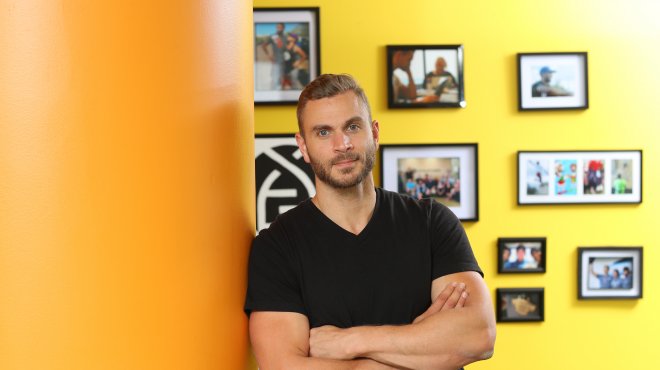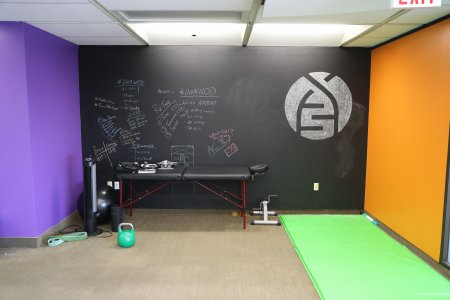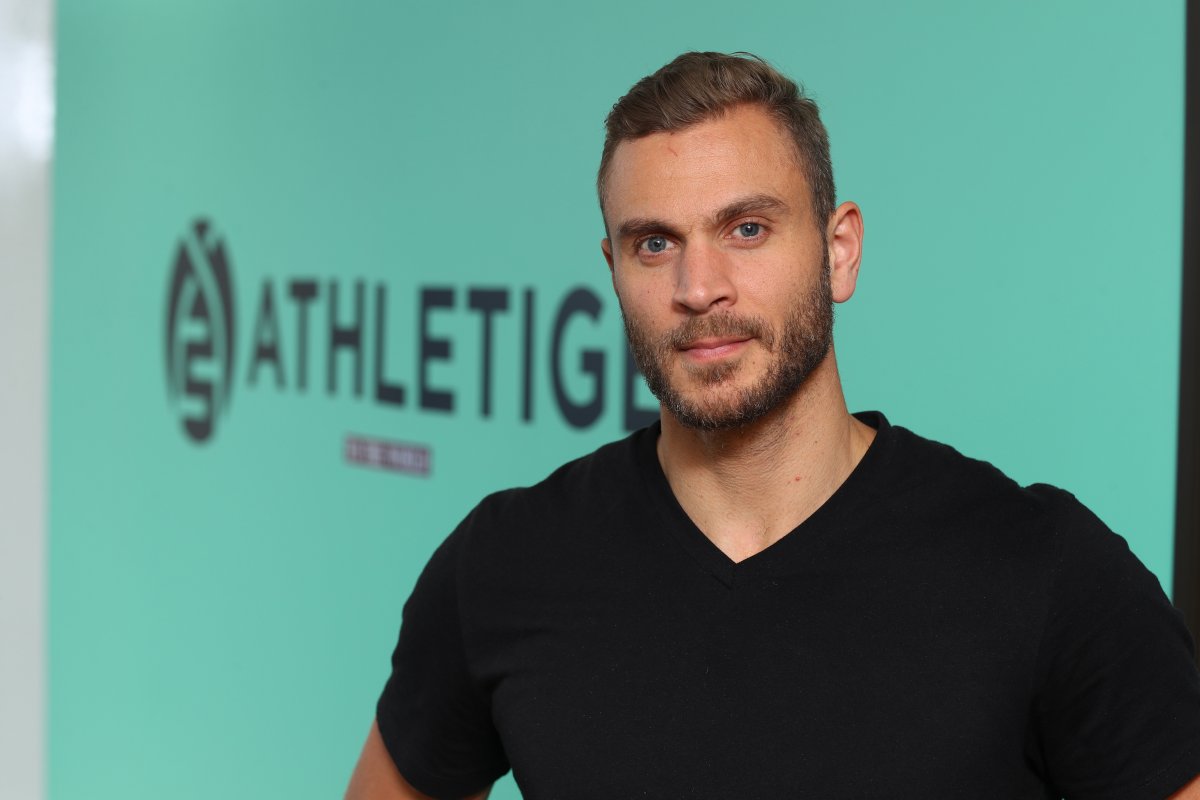
Dr. Jeremy Koenig (BSc’03, PhD’09): Genetically possible
By Mark Campbell
For Dr. Jeremy Koenig (BSc’03, PhD’09), seeing the Canadian men’s 4X100 metre relay team claim the bronze medal at the 2016 summer Olympics was an emotionally charged moment.
It was more than patriotic pride that Dr. Koenig was experiencing. He had worked closely with team member Akeem Haynes, and his training organization, ALTIS, based in Phoenix, AZ, to build the first performance genomics app (appropriately named IRIS) so that athletes can see information about their genetics and training data to help spur podium finishes like these in the future.
“Haynes is one of the most stoic, well-spoken and profound thinkers I have ever met,” Dr. Koenig says. “To be there and see him speechless, to see the joy in his eyes as he achieved his dream, that was amazing.”
Revolutionizing performance through DNA insights
A former Dalhousie track and field team captain and Academic All-Canadian, Dr. Koenig is the founder and CEO of Athletigen, a Halifax-based company that is revolutionizing the way athletes train by exploring the dynamics of human potential and genetic influence. Using proprietary DNA insights, Dr. Koenig and his team analyze potentially millions of human performance markers to develop precision insights that are helping athletes such as Jeremy Dodson, Lacey Henderson and Tori Pena—who all competed at the 2016 Olympics—to improve their performance by targeting everything from nutrition to injury prevention.

A training room in Athletigen’s Halifax office (Image: Nick Pearce).
“I love the science of genetics, and I’m fascinated by human performance, so this was a way to bring those passions together,” Dr. Koenig says.
“Look at the way a ballerina moves, or what it takes to hit a home run. All of that is underpinned by our genetics to some extent. What Athletigen has done is build a technology so athletes can access this information about themselves, consider it in the context of their daily lives and act on it.”
Dr. Koenig’s interest in human genetics, health and performance began at an early age. “My mother was diagnosed with multiple sclerosis,” Dr. Koenig explains. “There aren’t too many 14-year-olds who can talk about eicosanoid balance and anti-inflammatory pathways, and that’s why I ultimately studied molecular biology and genetics at Dalhousie: I wanted to do it for her sake.”
Finding success in Nova Scotia
The Toronto native says it was the calibre of the program and faculty that drew him eastward to Dalhousie, and it is easy to see the University’s influence in Athletigen’s DNA. “There were so many brilliant professors doing great work, including my Honours Thesis Supervisor (and first female Rhodes Scholar) Dr. Melanie Dobson (BSc’77) as well as 2014 Herzberg Medal recipient Dr. Ford Doolittle, my PhD supervisor. They gave me the trust to figure things out for myself, and they emphasized that it’s not necessarily the best answer you’re looking for; it’s the best question. That continues to motivate me.”
Dr. Koenig also learned the value of building a strong team around you, which he has done, bringing renowned geneticists, engineers, physiologists and former pro-athletes from around the world to work at Athletigen. In that way, he’s helping to reverse the brain drain that Nova Scotia has experienced in recent years, while contributing to the province’s economic growth. Although he is location agnostic, Dr. Koenig says there are compelling reasons to be based in Halifax beyond the fact that it was the birthplace Oswald Avery, who helped determine that DNA was the building blocks of genes and chromosomes.
“Being here forces you to be creative in finding money, attracting talent and designing a world-class company,” Dr. Koenig says. “We’ve had great support from organizations such as ACOA and Bionova, and we have collaborations with Dalhousie, such as the co-op students and interns we hire. We may travel a lot to meet with athletes, but we can build and leverage that network from here and, in parallel, manage remote satellite locations in Toronto and LA. To do this effectively, we must be diligent in how we operate as a company and be better focused in strategically allocating how we spend our time.”
A legacy of accessibility
Dr. Koenig has a clear vision for how he wants to spend his time: making genetic information accessible so that everyone can strengthen their ‘performance’—their lives—in some way. It could be data that helps your immune system fight off a viral infection, or how to use cellular biology to mitigate your risk of developing cancer.

Dr. Koenig at Athletigen’s Halifax office (Image: Nick Pearce).
He emphasizes that we are entering the age of digital health, and health management is becoming a collaboration between patient and caregiver, which means it is proactive instead of reactive. But his motivation remains the same: to honour his mother and the inspiration she provided for his passions.
“This is about asking the best questions, and the question here is: ‘What do I want my legacy to be?’ My motivation to better understand the human body started with her. If what we learn through our work at Athletigen provides us with more insights on not only athletic performance but also things like auto inflammatory diseases such as MS, that would be rewarding for me. I see every cellular division in our bodies as a performance event and, indeed, life itself is the ultimate performance.”